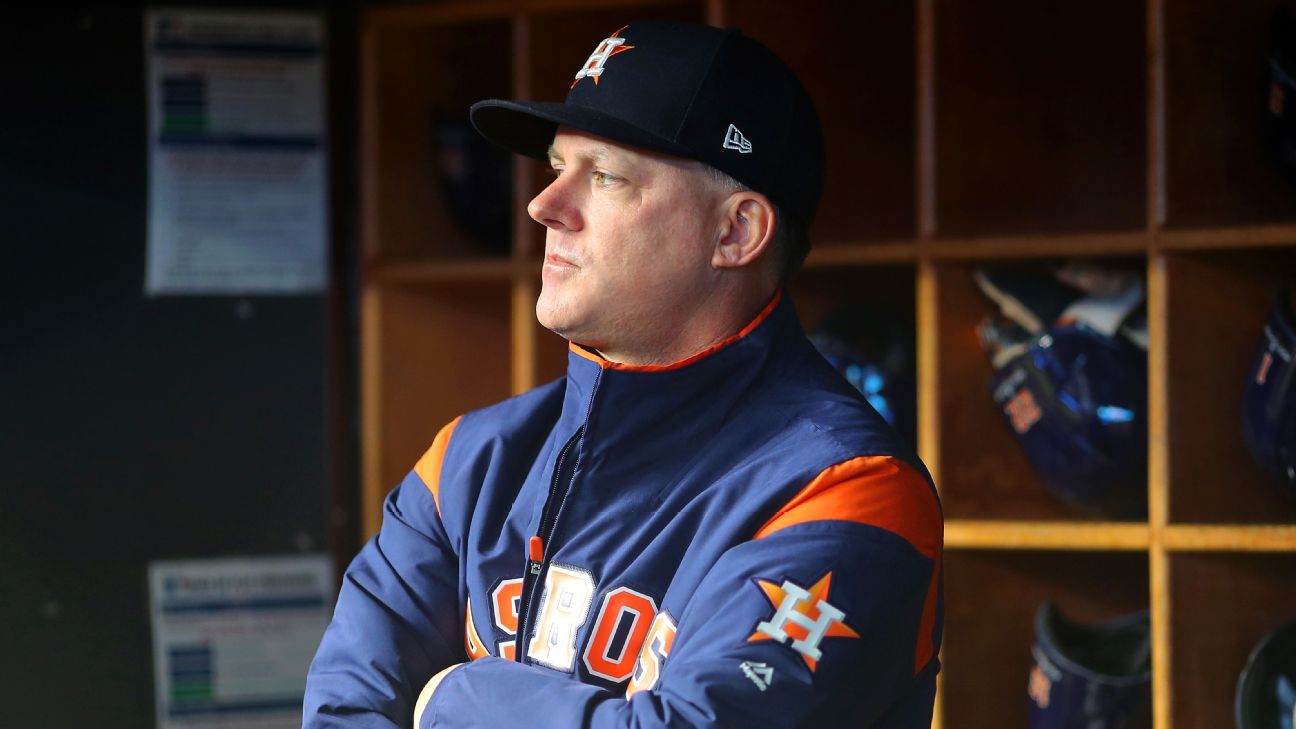
HOUSTON -- Astros manager AJ Hinch said he agreed with Washington Nationals shortstop Trea Turner, who protested a controversial ruling in Game 6 of the World Series that called him out for interference after he ran into Houston first baseman Yuli Gurriel.
"That one, I wish common sense prevails. Because I actually side with Turner on this one, that I didn't think that he was getting in the way of anything," Hinch said at a news conference before Game 7 on Wednesday. "It was an errant throw."
In the seventh inning of Game 6 that Washington led 3-2, Turner tapped a ball up the third-base line and sprinted to first. Pitcher Brad Peacock fielded the ball and threw it toward Gurriel. As the up-the-line throw arrived, Turner crashed into Gurriel's glove. The ball kicked away, and Turner and Yan Gomes advanced to second and third base.
Umpire Sam Holbrook then called Turner out for interference, setting off a series of events that led to the ejection of Nationals manager Dave Martinez and Turner asking for an explanation from Major League Baseball's chief baseball officer, Joe Torre, who was sitting in the stands.
Because Turner ran in fair territory instead of the runner's lane outside the foul line that starts at the halfway mark to the base, Holbrook ruled that he had interfered -- by the rulebook, a judgment call for an umpire.
While the call was rendered moot by Anthony Rendon's two-run home run later in the inning, the controversy over the rule and its inconsistent application raged on after the game. Turner expressed confusion as to where he should have run, considering that if he stayed in the designated runner's lane, he still would have crossed the base in the same place as he did when he collided with Gurriel.
"What else do you do?" Turner said. "I don't know. The batter's box is in fair territory. First base is in fair territory. I swung, I ran in a straight line, I got hit with the ball and I'm out. I don't understand it. I can understand if I veered one way or another. I didn't."
Torre said that because Turner was inside the line and close to the cut of the grass, he could have affected Peacock's throwing lane.
"If you notice, he was running inside the line toward fair territory toward the grass," Torre said. "And he was coming from the angle. If he had been running from the 45-foot line, he'd been coming from a different angle and the first basemen may have had an easier chance catching the ball. As you saw, the glove came off Gurriel's hand and he wasn't doing anything but trying to catch the ball. My view is if he catches the ball, Turner is fast, but had hadn't gotten to first base yet."
Because the ball was up the third-base line, Peacock's view of first was relatively unimpeded, and Holbrook could have chosen not to call interference.
By definition, a judgment call can be neither reviewed via replay nor protested. Umpires still caused a 4½-minute delay consulting with replay officials at MLB's offices in New York.
"The process of trying to get it right I think we can always sharpen," Hinch said.















 Phone: (800) 737. 6040
Phone: (800) 737. 6040 Fax: (800) 825 5558
Fax: (800) 825 5558 Website:
Website:  Email:
Email: 






